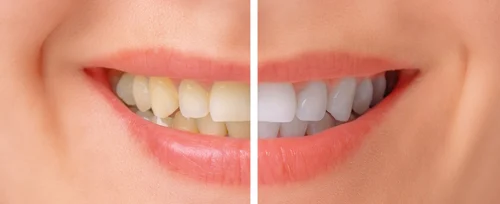A bright, white smile is often seen as a sign of confidence and good oral health. However, when it comes to teeth whitening, there’s no shortage of myths and misunderstandings. In this post, we’ll debunk some common misconceptions, provide accurate information, and share practical tips for achieving a dazzling, whiter smile.
Myth #1: Whitening Toothpaste Alone Can Whiten Teeth
Reality: While whitening toothpaste can help with surface stains, it might not make a significant change to the natural colour of your teeth. For more noticeable results, professional teeth whitening procedures are a better option.
Myth #2: All Teeth Whitening Methods Deliver the Same Results
Reality: There’s a range of teeth whitening methods available, from over-the-counter products to professional in-office treatments. Dentist-administered treatments tend to produce quicker and more noticeable results.
Myth #3: Teeth Whitening Harms Tooth Enamel
Reality: When done under the guidance of a dental professional, teeth whitening is a safe procedure that doesn’t harm tooth enamel. However, it’s crucial to avoid excessive use of DIY whitening remedies, as they can lead to enamel erosion.
Myth #4: Anyone Can Whiten Their Teeth Regardless of Dental Health
Reality: Individuals with underlying dental issues, such as gum disease, tooth decay, or sensitive teeth, should consult a dentist before undergoing teeth whitening. Addressing these concerns ensures a safe and effective whitening process.
Myth #5: Teeth Whitening Results Last Forever
Reality: Teeth whitening is not a permanent solution. The duration of results depends on factors like lifestyle choices and oral hygiene practices. Periodic touch-up treatments may be necessary to maintain the desired level of whiteness.
Best Practices for Teeth Whitening:
1. Professional Consultation: Before embarking on any whitening treatment, consult with a dental professional to assess your oral health and determine the most suitable whitening method.
2. Professional In-Office Whitening: Consider professional, in-office teeth whitening for faster and more effective results. Dentists use advanced techniques that are both safe and efficient.
3. At-Home Whitening Kits: If opting for at-home kits, choose those recommended by your dentist. Follow Best Practices for Teeth Whitening and avoid overuse to prevent potential sensitivity.
4. Maintain Good Oral Hygiene: Regular brushing, flossing, and dental check-ups are crucial for maintaining oral health and prolonging the effects of teeth whitening.
5. Be Mindful of Stain-Causing Foods: Limit consumption of stain-causing foods and beverages, such as coffee, red wine, and berries, to maintain whiter teeth.
6. Avoid Tobacco Products: Quit or reduce tobacco use as it significantly contributes to tooth discolouration. Abstaining from tobacco will help preserve your newly whitened smile.
7. Manage Sensitivity: If you experience tooth sensitivity after whitening, use toothpaste designed for sensitive teeth and consult your dentist for recommendations.
In conclusion, understanding the facts and dispelling myths about teeth whitening is crucial for making informed decisions. Professional guidance, coupled with appropriate at-home care, can lead to a brighter, whiter smile while ensuring the health and longevity of your teeth. Remember, a radiant smile starts with a healthy foundation.
Also Read:

